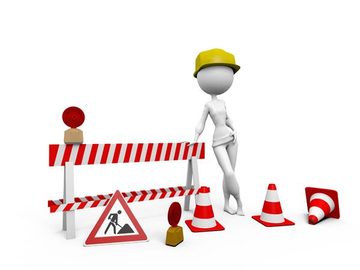
1) Improving my site’s usability will increase design costs
It’s a good idea to allocate 10 per cent of your web design budget to usability testing. It’s much better to have a simple, user-friendly site than a more sophisticated one that nobody can use.
2) I don’t need to simplify – it’s obvious how to use my site if visitors just think about it!
Web visitors aren’t tolerant of difficult or ‘clever’ websites. If a visitor can’t grasp how your site functions within a few seconds, the most likely response is that they’ll just leave.
3) Usability can’t be measured, so I can’t manage it
There are plenty of ways to measure usability, from tracking user journeys and rates of abandoned purchases to customer experience surveys.
4) I don’t need to test for usability – it’s just logical, isn’t it?
Not necessarily. User testing can reveal quite obvious flaws in processes, which you’re ‘too close’ to the website design to spot yourself.
5) Appearance is more important than how my website feels to use
Appearance can be very important for a website, but this shouldn’t take precedence over usability. If an unusual site design is causing confused visitors to get frustrated and leave, it’s actively unhelpful for your aims.
6) My site doesn’t need ‘usability’ – it just needs to provide information
Usability is about putting the customer first and giving them what they need to access information – which should be at the heart of every business’ strategy.
7) I can’t make my existing website more usable – I need to start from scratch
There are lots of ways to make your existing site more usable. For a start, display your key content prominently, make sure colours and styles are consistent throughout, and simplify processes for any tasks you want visitors to carry out.
8) If my site looks the same as everyone else’s, it must have good usability
This could be true up to a point – familiarity is a big component of usability for websites. But just because there’s an ‘accepted’ way to do things doesn’t always mean it’s the BEST way. Besides, finding a solution to a common frustration could give you a head-start on the competition.
9) Usability just means accessibility for disabled visitors
Usability is about helping every possible user – and potential customer – to access your site. That including visitors with disabilities, visitors using different types of browsers and mobile platforms, and users with little technical expertise.
10) Usability won’t improve sales
Anything that improves the customer experience can help improve sales! It can help both directly (by smoothing the customer journey to conversion) and indirectly (by building engagement, customer satisfaction and loyalty).





